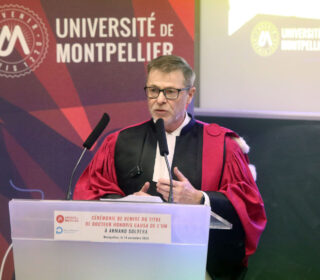Noémie Coulon, voice of the ocean
A postdoctoral researcher at the Marbec laboratory, ecologist Noémie Coulon is one of nine young researchers selected by the Ocean Institute to cover the One Ocean Science Congress in Nice in early June. It's a perfect fit for this specialist in the impact of climate change on rays and sharks in Europe.
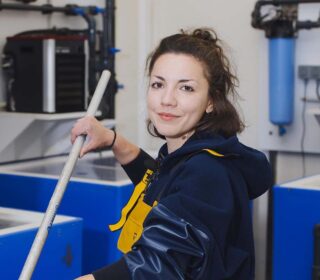
Olivier Torrès: From PMU to PMist
With the Amarok observatory, Professor Olivier Torrès has dedicated his research to improving the health of small and medium-sized enterprise (SME) managers. His career has been doubly rewarded with the Julien Marchesnay Prize in 2024 and a knighthood in the National Order of Merit in 2025.
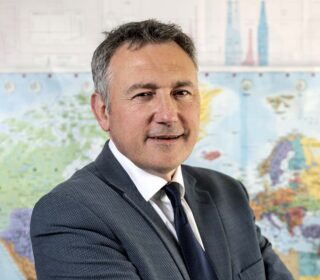
Mircea Sofonea, the model epidemiologist
Mircea Sofonea is an epidemiologist at the Pathogenesis and Control of Chronic and Emerging Infections (PCCEI) laboratory. Although his field has only become widely known since the Covid epidemic, for him it has been a lifelong vocation. Portrait of a researcher who knows how to stay the course.
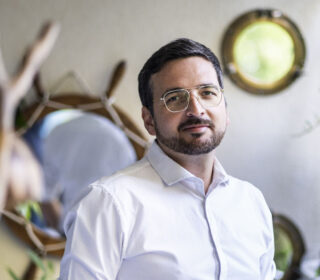
Lutz Gade, the chemist with an eye for aesthetics
As Chair of Inorganic Chemistry at Heidelberg University and Director of the Institute of Inorganic Chemistry, Lutz Gade has acquired world-renowned expertise in his field over the years. In addition to his academic career, he was awarded an honorary doctorate from the University of Montpellier in February 2025 for his commitment to cooperation between the University of Heidelberg and the University of Montpellier.
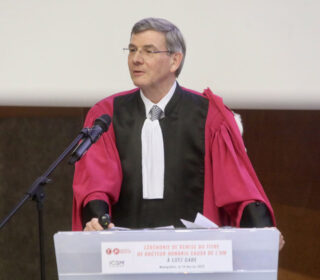
David Mouillot: Fish and Men
After studying the impact of human activities on marine biodiversity, David Mouillot is now looking at the potential impact of coastal marine resources on reducing human poverty. The professor at the University of Montpellier and researcher at the Marbec laboratory has just been awarded an ERC Advanced Grant to conduct transdisciplinary research on this new topic.
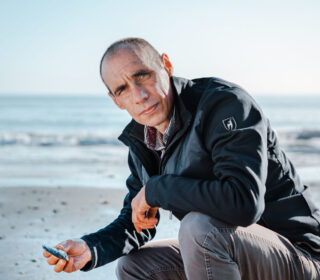
Armand Soldera: a man of conviction
Dean of the Faculty of Science at the University of Sherbrooke in Quebec (Canada), Armand Soldera has been awarded an honorary doctorate from the University of Montpellier. A well-deserved honor for this Professor chemistry, who is as committed as he is adept at forging lasting ties with the University of Montpellier and its constituent parts, including Polytech Montpellier.
